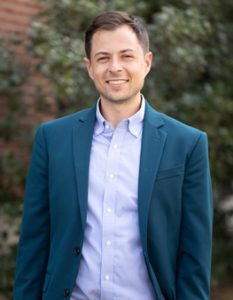Maine Law faculty are engaged in a wide range of activities designed to promote diversity, equity, and inclusion in the law. Below are some recent examples:
- Public Interest and Social Justice Certificate: In Spring 2023, the Maine Law faculty voted to approve a new certificate in Public Interest and Social Justice. Professor Deirdre Smith is the Certificate Director. The certificate provides students with a clear pathway to pursue their passion for social justice and public interest law. The certificate includes a required course, Law, Social Justice, and the Public Interest, completion of other qualifying courses, and a clinical requirement. Public interest law and issues of social justice have long been foundational to a Maine Law education and the work of the Cumberland Legal Aid Clinic, and the certificate reflects and reinforces Maine Law’s commitment to these issues.
- Orientation Programming: Recognizing that DEI is a core issue in legal education, Maine Law has consistently offered DEI programming to each year’s incoming class. This has taken various forms, including requiring entering 1Ls to read Michelle Alexander’s The New Jim Crow. Maine Law faculty moderated small reading group sessions as part of Orientation. It has also included a film about Pauli Murray and discussion of her work and ideas.
- Race, Gender, Sexual Orientation & the Law: Offered regularly since 2008, this course deals with constitutional law (state and federal), legal doctrine, and legal theories in the areas of U.S. law and race, gender, and sexual orientation (and related areas). The course includes exercises such as an oral argument in a contemporary case, historical readings, and allows detailed consideration of the relationship between legal and other issues involving these areas. Long taught by Professor Jennifer Wriggins, this spring it was co-taught by Professor Wriggins and Adjunct Professor Krystal Williams.
- Racial Injustice in the Law: In Fall 2020, Maine Law offered this new course, team taught by ten Maine Law faculty members. The course examined racial injustice issues throughout a wide range of legal fields, including Property, Tax, Criminal Law, Business Law, Family Law, and many others, with different faculty members leading various sessions. In Fall 2022, Maine Law offered this course again, team taught by every member of the Maine Law faculty.
- Law, Social Justice, and the Public Interest: Offered for the first time in fall 2023, this course is a key element of the new Public Interest and Social Justice Certificate. Drawing on select case law and seminal legal, philosophical, and sociological writings, this course equips students with a broad understanding of foundational theories and concepts that shape how “justice”, “common good”, and “public interest” are understood today. Taught by Adjunct Professor Krystal Williams, this course is an expansion of an earlier course, Social Justice Lawyering, taught in Fall 2021.
- Impact Lawyering: A Practicum for Social Justice Reform. Offered in Spring 2022 and Spring 2023, this course provides students with a comprehensive overview of the strategies and practical skills necessary to advocate effectively for public policy reform. Students identify a pressing systemic racial, economic, or social injustice in the community, which could be addressed through a change in law, regulation, ordinance, or other public policy and learn how to advance a solution. Students employ equity-based criteria for policy development, conduct a landscape analysis of decision-makers and influencers, determine a strategy for change, and implement the tactics necessary to carry out that strategy. Specific skills covered include “power mapping”; drafting legislative and/or regulatory proposals; locating, evaluating, and using social science research and data; lobbying elected officials; preparing and delivering written and oral testimony; working in coalition; and developing communications tools and targeted messaging. In addition to learning the strategies and skills to advance a policy change, students gained an understanding of the broader context for influencing law and public policy and the possible roles lawyers can play in social change efforts. This course, taught by Adjunct Professor and Director of the Center for Youth Policy and Law Jill Ward, is an expansion of an earlier course, Changing Laws, that was team taught in January 2021.
- Beyond the Headlines: Professors Northrop, Moffa, and Pi participated in “Beyond the Headlines” Q&A with students. Started in Fall 2021, Beyond the Headlines provides a forum for friendly conversations during the semester connecting legal thinking to current events and our personal commitment to justice.
- Human Library. The inaugural Human Library took place in Fall 2021. The Human Library brings curious minds together to create a brave space where event speakers (“books”) from unique and diverse backgrounds share their stories with attendees (“readers” – meaning you!). The intimate, small group setting aims to provide a comfortable atmosphere for open discussion and positive change around topics that society has traditionally deemed “taboo.”
Many Maine Law faculty have incorporated social justice themes, including issues of race, in particular, into their assigned readings and class discussions. The following examples highlight some of the issues raised in select courses:
- Business Associations: Professor Pitegoff’s Business Associations course, most recently in Fall 2022, explored issues related to corporate responsibility and the increasing attention to environmental, social, and governance (ESG) impacts of corporate enterprises. In that context, the class examined the shortcomings of corporate approaches to ESG, the lack of diversity on many corporate boards, and racial discrimination and exclusion in both employment practices and financial markets.
- Cannabis Law: Professor Bloomberg focused numerous class discussions on racial inequities in cannabis law and dedicated separate classes to the impacts of the war on drugs on communities of color and to building social equity in the cannabis industry.
- Contracts (first-year): Professor Feinberg incorporated readings/discussions that address diversity-related concerns, particularly in the context of the doctrine of unconscionability and in determinations of how the “reasonable person” would view a given situation.
- Civil Procedure § 1 (first-year): Professor Wriggins assigned supplemental readings, including the case Confederated Tribes v. Lujan (a case about joinder and necessary parties to give important context about federal Indian Law), a recent injunction case from Alabama on gender-affirming care, and on procedural rules that allow large litigants to readily seek to collect small amounts from pro se defendants. Professor Wriggins also emphasized in the course the access issues raised by different filing fees and other fees in federal court versus state court. She spoke in class about the Hansberry v. Lee case, which deals with issues of residential segregation and racism.
- Civil Procedure § 2 (first-year): Professor Caruso in class evaluated ways that rules about process of litigation, particularly in federal courts, actually shape and limit access to justice, and what (and whose) interests our process rules serve. The class explored what the procedural rules mean for people without access to legal representation, and how these rules and doctrines can systematically exclude or de-value the lived experiences of minority communities. The class also explicitly studied issues related to tribal litigation in federal court; how some tools are used more, less, or differently in discrimination and other civil rights cases; and the background of systematic or legalized discrimination that make up the backdrop of several seminal civil procedure cases (including the famous case on racial housing discrimination at the heart of the acclaimed play A Raisin in the Sun).
- Civil Rights Litigation: Taught by Professor Caruso, this course focuses on the process and particular challenges of litigating civil rights, and particularly of litigating constitutional rights against the government. The course deals with a variety of rights that are central to current social justice advocacy, including policing and use of force, incarceration and confinement, and myriad forms of private discrimination (in things like employment and housing). It also explores institutional impact litigation, such as school desegregation and prison reform litigation, and the possibilities and limitations of that kind of structural litigation in the current context. Pervasive themes of the course include ways that governments limit and shape their own liability and that of their agents, the consequences of litigation and claim procedure for substantive access to justice and relief, and the role and obligations of attorneys in social movements.
- Constitutional Law: Professor Bloomberg’s Constitutional Law class often revolved around issues of race, gender, and sexual orientation. In addition to the core Constitutional Law cases in these areas, Professor Bloomberg incorporated numerous readings and cases regarding these issues, including writings by Frederick Douglass, Charles Black, and Barack Obama. Professor Bloomberg also focused on the (often overlooked) history around the Reconstruction Era in teaching the Fourteenth Amendment. This history provides key context for understanding our nation’s current shortcomings in racial justice.
- Economic Development Law Practicum: Professor Pitegoff’s Economic Development Law Practicum, in Spring 2023, is a skills course in community-based economic development. It focuses on economic justice, affordable housing, quality job development, finance transactions, and community revitalization, particularly in disadvantaged urban and rural settings. Explicit attention to minority-owned and women-owned enterprises, and to the history, domestic policies, and practice of economic development and finance, give rise to a pervasive theme of diversity, equity, inclusion, and economic and racial justice.
- Elder Law: Professor Feinberg’s assigned readings and discussions focused on topics such as: (1) racial disparities in the context of the Social Security Program; (2) the disproportionate toll that that the pandemic has taken on women, including in the context of retirement savings; (3) discrimination against LGBTQ+ individuals in the context of housing for the elderly; and (4) racial disparities in advance directives and end of life care.
- Employee Benefits Law: Professor Pitegoff’s Employee Benefits Law course, most recently in Fall 2022, examined federal regulation of employer-sponsored benefit plans with respect to retirement and health care. The underlying public policies implicate issues of economic and racial inequity in access to profit-sharing plans, family and medical leave, fair pay and benefits, workers’ compensation law, collective bargaining, and more. This inquiry also includes explicit attention to government benefit policies such as Medicare, Medicaid, Social Security, Fair Labor Standards, and the Affordable Care Act, and their implications with respect to equity.
- Environmental Law: Professor Moffa’s Environmental Law and Policy course has a semester-long, asynchronous environmental justice unit that parallels the base course content. The environmental justice unit requires students to engage with written, audio, and video content (from scholars like Dr. Robert Bullard and Rebecca Bratspies to leaders like Bill McKibben and many in between) that confronts issues of environmental justice in various areas of pollution and regulation – air, water, waste, pesticides, etc. Students reflect on those materials in a collaborative online discussion, as well as bring the perspective they provide into oral discussion during class sessions.
- Family Law: Professor Feinberg’s assigned readings and discussions focused on topics such as: (1) the role of race in the historical and current laws governing family privacy, marriage entry, and child custody; (2) the role of gender in the historical and current laws governing marital rights, divorce, property distribution, alimony, and child custody; (3) the role of sexual orientation in historical and current laws governing family privacy, marriage entry, parentage establishment, and child custody; (4) class-based considerations in the context of spousal and child support; and (5) issues faced by transgender individuals in the child custody context.
- Juvenile Law: Jill Ward, Adjunct Professor and Director of the Maine Center for Juvenile Policy & Law, incorporated themes of racial disparities and systemic/structural racism throughout the semester and focused a couple of classes specifically on Race and the Juvenile Justice System and Specialized Fourth Amendment Protections in the School Context and related disparities.
- Land Use: Timothy Harris’ Land Use Class incorporates the unfortunate history of discriminatory and oppressive red-lining and lending practices, race-based covenants, the disparate impacts of eminent domain, and gender-based limits on property ownership in developing countries. We discuss policies that make communities affordable, the impact of gentrification, and what makes neighborhoods desirable and livable.
- Legal Research, Analysis, and Communication (first-year): Drawn from among readings that Professor Arey and Professor Wolff had previously assigned to second- and third-year students in the upper level Racial Injustice in the Law course, Professors Arey, Wolff and Nidiry introduced select readings to their first-year law students that examine ways in which the text of judicial opinions reflects and reinforces the exclusion of historically marginalized groups. These readings further examine the role attorneys have played in writing those groups into the margins. In class discussions about the readings, students considered the societal impact attorneys have with the rhetorical and linguistic choices they make. Students were also encouraged to practice reading legal texts critically—and with sensitivity to the missing context and concealed narratives of marginalized people—to enhance their understanding of the texts. Additionally, throughout the year-long course, the professors worked to develop new legal writing problems, assignments, samples, and quizzes that incorporate—and create opportunity to discuss— concepts of diversity and inclusion in legal writing, the legal profession, and in the law. Further, Professor Nidiry, drawing upon his work prior to entering academia, incorporated case materials that centered the stories of incarcerated people, which provided opportunities for the class to explore issues related to entrenched power structures in the legal system and access to justice while learning about writing mechanics and effective advocacy.
- Local Government Law: Local governments are deliverers of important public services, and also sites of community building, self-identity, and civic engagement. Among the core themes for this course on the fundamentals of local government law, taught by Professor Caruso, are: who is included when we legally define communities, who gets to decide what interests a municipality will serve, and what different structures mean for who gets to participate in governing choices, and how. The course explicitly explores local government both for its history and possibilities for empowering and protecting minority and vulnerable communities, and the persistent use of municipal law and urban policy to limit, exclude, and disempower marginalized groups- particularly racial and ethnic minority communities in urban spaces.
- Natural Resources Law: Professor Moffa’s Natural Resources course includes readings and cases on tribal treaty rights. Out of a total of three written assignments over the course of the semester, one of them focuses entirely on tribal property and resource rights, asking students to analyze whether the easements around Lake Oahe for the Dakota Access Pipeline effectuate an unconstitutional taking by the federal government from the Standing Rock Sioux tribe.
- Nonprofit Organizations: Professor Pitegoff’s Nonprofit Organizations class in Spring 2022 included examination of the central role of nonprofit organizations and philanthropy in grappling with issues of diversity, equity, and inclusion. This involved current institutional initiatives, as well as the evolution of tax law promoting anti-poverty efforts, community revitalization, and inclusive nonprofit governance.
- Privacy Law: Professor Bloomberg focused numerous class discussions on how privacy law has historically prejudiced women, minorities, and other disfavored groups. He also assigned group projects on facial recognition technology and cyber-harassment.
- Professional Responsibility: Professor Pitegoff’s Professional Responsibility course in Spring 2023 includes a collaborative mid-term project assessing the new disciplinary rule addressing discrimination and harassment in the legal profession. In small groups, students analyze Rule 8.4(g) of the ABA Model Rules of Professional Conduct, which was recently adopted in Maine. Each group produces a policy essay and discusses the rationale, history, value, and criticism of the Rule and how best to improve upon it. Throughout the semester, the class explores issues of inequity and access to justice, particularly with respect to criminal defense and civil legal services for indigent clients.
- Property (first-year): Timothy Harris’ Property class incorporates DEI issues throughout the semester, including Native American rights, housing affordability, discriminatory zoning, and the history of feudalism-based concepts of property rights. We discuss various theories of property ownership, and how particular classes benefit from differing concepts of what it means to “own” both land and personal property.
- Selected Topics in Modern Family Law Seminar: Professor Feinberg included assigned readings and discussions focused on topics addressing: a variety of issues relating to racial discrimination within the adoption and foster care systems; discrimination against individuals with disabilities in the adoption context; the treatment of transgender individuals in the child custody context; and discrimination against same-sex couples who wish to serve as foster parents for children who enter the U.S. as unaccompanied minors.
- Taxation I: Professor Maine’s course highlighted and discussed several racial disparities in the Internal Revenue Code.
- Torts (first-year): Professor Moffa’s Torts course utilizes a newly published casebook – Tort Law: A 21st-Century Approach by Zahr K. Said – that more consciously addresses the inequity in the torts system and the indirect harms that continuing to focus on antiquated cases with embedded racial, class, and gender stereotypes can perpetuate in the classroom. The casebook is freely available online, taking a concrete step towards accessibility and inclusivity for students of different means and abilities. The class also includes guest lectures by Prof. Jennifer Wriggins, accompanied by reading assignments from her book The Measure of Injury: Race, Gender, and Tort Law and her Howard Law Journal piece Torts, Race, and the Value of Injury, 1900-1949. The students also read and discuss a piece by critical race theorist Mari Matsuda, On Causation, in which she demonstrates how the tort system sacrifices human bodies to maintain the smooth flow of the economic system.
Principles of diversity, equity, and inclusion are deeply embedded in the everyday work of Maine Law’s clinical programs. Through each of the clinical programs, students deal directly with the impact of systems on low-income individuals, people of color, and other historically-marginalized populations and learn how to advocate on behalf of their clients. In addition to representing individual clients on a wide-range of case types, students also engaged this year in appellate litigation and policy work in an effort to combat systemic racism – whether it be seeking to combat racism within the U.S. asylum process through the filing of a lawsuit against U.S. Citizenship and Immigration Services or through the recent filing of a complaint in federal court seeking to end the unethical transfers of ICE detainees in Maine to areas down south or through ongoing work to close down the state’s school to prison pipeline, which has a significant disproportionate effect on youths of color and youth suffering from a disability or learning difference. This project involves faculty and students advocating for ongoing reforms to keep youth out of the justice system and to increase investment in community alternatives to incarceration; changing school policies to prevent suspensions, expulsions, and other exclusionary practices that keep youth from engaging in their education programs; and providing state-wide training to juvenile defenders and education advocates that provide the skills and support necessary to do this work well.
In addition to developing these practical legal skills through case and project work, the Clinic experience fosters in students a deeper understanding of the inequities that exist within the legal system, a practice of listening to those who suffer at the hands of unjust systems, and the skills to take action to address systemic biases. This year, each of the clinic-wide seminar classes infused readings, exercises and discussions relevant to bias, social justice and anti-racism, along with specific classes on cultural humility, lawyering for social justice, and trauma-informed lawyering. Our Clinic’s summer program also features weekly student-directed and student-led dialogue on the inequity in the law where topics such as school-to-prison pipeline, racial disparities in health care, white saviorism, among many others, are explored. The summer program also incorporates bias and racism in mindfulness teaching of law students, including bringing in the work of Professor Rhonda Magee. The Clinic students and faculty decided to continue the student-led discussions into the fall semester. Recent topics included mass incarceration, the impact and legacy of Pauli Murray, and the removal of Indigenous Maine children from their families by the State.
Refugee and Human Rights Clinic (RHHC)
The Refugee and Human Rights Clinic created a new report entitled “Lives in Limbo: How the Boston Asylum Office Fails Asylum Seekers.” Over the last three years, the RHRC has engaged in a multi-modal advocacy project, which includes an ongoing FOIA lawsuit in federal court as well as a comprehensive qualitative and quantitative investigation into the practices and policies at the Boston Asylum Office. The results of the investigation culminated in this final report that highlights systemic problems (including bias) associated with the adjudication of asylum applications, problems which impact not only Maine asylum seekers but asylum applicants across the country. The report has already received considerable attention including, e.g., by Human Rights First as well as local and regional media outlets. The project recently received the national Clinical Legal Education Association’s Award for Excellence in a Public Interest Project.
 |
Scott Bloomberg:
|
 |
Professor Feinberg:
|
 |
Professor Moffa’s:
|
 |
Professor Welch:
|
 |
Professor Wriggins:
|
- Professors Bam, Bloomberg, Norchi, Thaler, and Welch participated in a joint course with the University of Maine Graduate and Professional Center, the Muskie School of Public Service at the University of Southern Maine, and Maine Law. The course, titled “Understanding the COVID-19 Pandemic,” touched on disparate impacts of the pandemic.
- Professors Welch and Beer presented during a concurrent session at the New England Clinicians Conference. The title of the presentation was “Reimagining the Clinic Seminar through the Lens of Justice Lawyerings.”
 |
Vice Dean Bam serves as Chair of Diversity, Equity, and Inclusion subcommittee of the Portland Chamber Music Festival Board (and also serves on the board of the organization). |
 |
Professor Bordelon assisted in drafting the joint Association of Academic Support Educators (AASE) and AALS-Academic Support Programs Section statement on racial injustice. |
 |
Professor Feinberg served on the Planning Committee for the Feminist Legal Theory Collaborative Research Network Program at the 2020 Law and Society Conference. |
 |
Professor Moffa advises “Color of Climate,” a group of Maine youth led by Lewiston City Councillor Safiya Khalid to raise awareness and promote action on climate change, with a focus on youth in marginalized communities. |
 |
Professor Northrop serves with Adjunct Professor Ward on the on the Racial and Ethnic Disparities Committee of the Maine Juvenile Justice Advisory group, a gubernatorial appointment. |
 |
Professor Pitegoff serves on the board of directors at Avesta Housing, a leading nonprofit affordable housing developer, manager, and advocate in Maine and New Hampshire. Avesta provides housing opportunities to low-income individuals and families, many who are recent immigrants and people of color, and engages in policy advocacy to expand housing options for those in need. Professor Pitegoff also serves on the board of directors of the Surf Point Foundation, an arts and artist residency foundation, based in York, Maine. The Foundation’s attention to race and equity in governance and program activity includes board policies, board composition, selecting artists for residencies, and outreach and funding to minority arts organizations. |
 |
Jill Ward, Adjunct Professor and Director of the Maine Center for Juvenile Policy & Law, serves on the Advisory Board of the Freedom & Captivity project, a state-wide public humanities initiative in partnership with Colby College and the other Maine universities, organizations and institutions to bring critical perspectives on issues of race, mass incarceration and justice. She is Chair of the Maine Juvenile Justice Advisory Group (JJAG), a gubernatorial appointment, and serves with Professor Northrop on the JJAG Racial and Ethnic Disparities Committee. She is also board president of the League of Women Voters of Maine which works to make government more equitable, inclusive, and accessible by improving elections, protecting and engaging voters, increasing civic engagement, and reducing the influence of private money in politics. |
 |
Professor Wriggins consulted with staff of PBS Program, Raising our Roots, hosted by Henry Louis Gates, on legal issues involving tort litigation in Mississippi in the early twentieth century. She also consulted with staff of the HBO Program Real Sports, hosted by Bryant Gumbel, on legal and related in the NFL Concussion settlement. |



